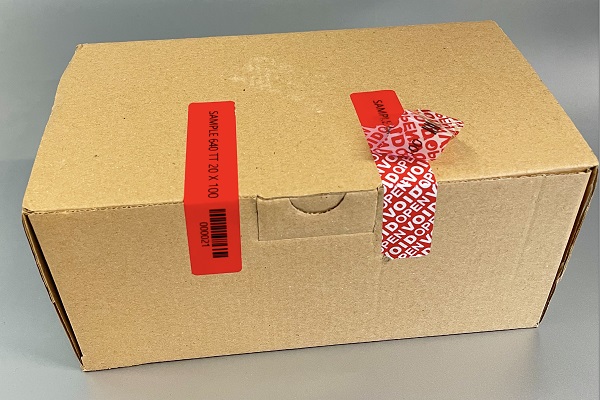What is Security Label? Security labels are specialized adhesive labels designed to protect products, packaging, and information from tampering, counterfeiting, theft, and unauthorized access. They play a crucial role in various industries by ensuring the authenticity and integrity of goods and sensitive information. These labels can be simple or incorporate advanced technology, depending on the level of security required.
Purpose of Security Labels
The primary purpose of security labels is to provide a tamper-evident solution that ensures the product or information has not been altered or accessed without authorization. Here are the key purposes of security labels:
- **Tamper Evidence**: Security labels provide clear, visible evidence if a product or package has been tampered with. This is achieved through designs that make it impossible to remove or alter the label without leaving obvious signs of interference, such as void patterns, broken seals, or destroyed materials.
- **Counterfeit Prevention**: By incorporating unique identifiers, holograms, or other advanced security features, security labels help prevent the counterfeiting of products. This is especially important for high-value items, pharmaceuticals, electronics, and luxury goods.
- **Theft Deterrence**: Security labels can act as a deterrent to theft by making it clear that products are monitored and protected. This is often used in retail settings to reduce shoplifting and product diversion.
- **Authentication**: Security labels can include serial numbers, barcodes, QR codes, or RFID tags that allow for easy verification of a product’s authenticity. This helps consumers, retailers, and customs officials confirm that a product is genuine.
- **Regulatory Compliance**: In many industries, the use of security labels is a regulatory requirement to ensure that products meet safety and authenticity standards. This is particularly critical in the pharmaceutical and food industries, where tampering could have serious health implications.
- **Brand Protection**: By ensuring the integrity and authenticity of products, security labels protect the reputation of brands. This is vital for maintaining consumer trust and brand loyalty.

Types of Security Labels
Security labels come in various forms, each designed to serve specific security needs:
- **Void Labels**: These labels leave a visible “VOID” message on the surface when removed, indicating that the product has been tampered with.
- **Destructible Labels**: Made from materials that break apart when removal is attempted, making it impossible to reapply the label intact.
- **Holographic Labels**: Incorporate holograms that are difficult to replicate, adding a layer of visual security and authenticity.
- **RFID Labels**: Contain radio-frequency identification tags that can be scanned for tracking and verification purposes.
- **Barcode and QR Code Labels**: Enable easy scanning for product tracking, inventory management, and authenticity verification.
- **Custom Security Labels**: Tailored to specific needs, these can include multiple security features like UV inks, microtext, and secure serial numbering.

Applications of Security Labels
Security labels are used in a wide range of industries and applications:
- **Pharmaceuticals**: To prevent tampering and ensure the authenticity of medication.
- **Electronics**: To protect against counterfeiting and ensure warranty validity.
- **Food and Beverage**: To maintain safety standards and prevent contamination.
- **Retail**: To deter theft and ensure products have not been tampered with.
- **Logistics**: To secure packages and shipments, providing tamper evidence during transit.
- **Government and Defense**: To protect sensitive documents and equipment from unauthorized access.
Conclusion
Security labels are an essential tool in safeguarding products, information, and brands from various security threats. Their ability to provide tamper evidence, prevent counterfeiting, and ensure regulatory compliance makes them indispensable in today’s global market. As technology advances, security labels continue to evolve, offering even more sophisticated solutions to meet the growing demands for security and authenticity in a wide array of industries.

